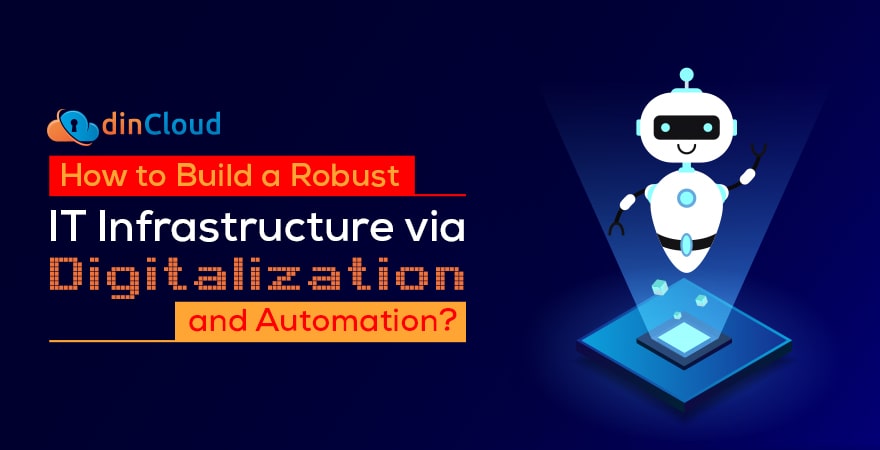Digitalization or digital transformation is the key buzzword since the past few months. Every organization, big or small, wants to ride the digitalization bandwagon and tap its potential benefits. However, very few have truly been able to achieve this feat.

Well, the root cause of this inability most likely lies in the misperceptions around digital transformation. Most enterprises and their IT decision makers think that merely digitalizing one aspect of an organization’s infrastructure has led to digitalization.
While this may be true in a very narrow context, the true benefits of digitalization can only be achieved if you inculcate this mindset in the very fabric of the organization. Secondly, digitalization requires a multi-faceted approach that caters all key stakeholders.
Below, we have tried to list a few core elements of a truly digitalized IT environment.
Self-Correcting Properties
By leveraging technologies like Machine Learning (ML) and Artificial Intelligence (AI), IT managers can define benchmarks for performance. AI will then use these benchmarks to intelligently manage processes such as load balancing and optimization.
This capability will enable you to extract the optimal level of performance from your existing IT resources. In case of Cloud Service Providers (CSP) like dinCloud, this capability will result in a highly optimized cloud infrastructure.
BYOD and Remote Work Support
This has lately become one of the core elements of any resilient IT infrastructure. Your IT environment, whether on premise or in the cloud, should be capable of fully supporting a remote workforce in every respect.
It involves seamless access to enterprise data, productivity applications and other enterprise tools being used to accomplish tasks. Bring Your Own Device (BYOD) support is yet another key requirement of today’s workforce trends, which has to be there.
Multi-Layered and Real-Time Protection
Cyber security is becoming a major concern for enterprises across all sectors. Your security protocols should be able to preempt, detect, isolate and respond to threats in real-time. Automated security should be able to raise a red flag before something bad happens.
Segmentation of the network and micro segmentation at the application level can enable you to better detect anomalies and threats as they surface. This approach will take you even closer to the ultimate goal of implementing Zero Trust Security.
Robust Business Continuity (BC) and Disaster Recovery (DR)
DR and BC are one of the core elements of any resilient IT infrastructure. This was made more evident than ever during the Covid-19 crisis. The IT infrastructures of enterprises must be capable of delivering BC even under the most extreme circumstances.
In any business environment, there are many external factors that are not directly under an organization’s control. So, although you cannot prevent disasters from happening, you can still have a robust DR in place if some disruptive event does actually occur.
A notable mention in this regard is Cloud powered disaster recovery (DR). Leading Cloud Service Providers (CSP) like dinCloud have achieved a robust DR posture by building a network of highly connected data centers across the globe.
This in turn allows us to move mission critical workloads to another data center, in the case of a disruptive event actually happening. Although you may go for on premise or cloud based DR capabilities, the latter has plenty of advantages over the on-site option.
Automation of Repetitive Tasks
By automating tasks and processes of a repetitive nature, you can firstly optimize your existing IT resources to extract the best performance. Secondly, your employees and IT professionals will thus be able to focus more on growth and innovation.
Conclusion
By leveraging digital transformation and automation, you will be able to build a resilient IT infrastructure. Such an IT environment will not only be able to thrive in the prevailing Covid-19 crisis, but will also help you prepare for any disruptions the future may hold.
Contact dinCloud for robust and resilient cloud services for your existing as well as future business needs.


